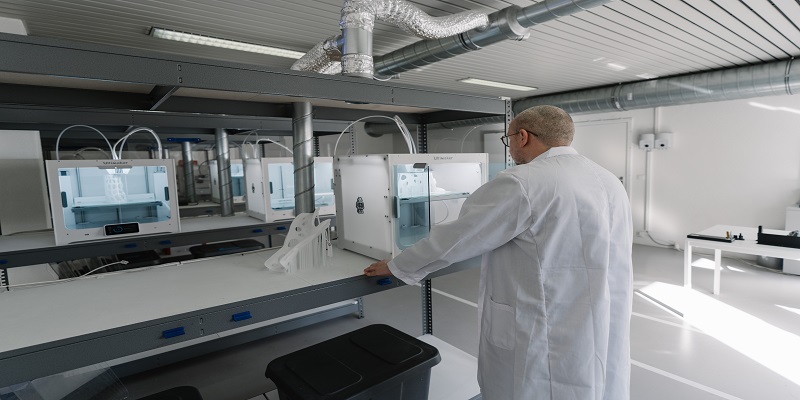Introduction:
The field of surgical technology is undergoing rapid advancements, revolutionizing the way surgeries are performed. From robotic assistance to 3D printing and minimally invasive techniques, these cutting-edge technologies are taking operations to new heights. In this article, we will explore the latest surgical technologies and their potential to enhance patient outcomes and improve the quality of life.
Four Cutting-Edge Surgical Technologies
Robotic Surgery: Robotic surgical systems, such as the Da Vinci system, enable surgeons to perform minimally invasive procedures with enhanced precision. These systems replicate the surgeon’s movements, offering greater control and accuracy during complex surgeries like heart, gynecologic, and urologic procedures.
3D Printed Implants: Utilizing 3D printing technology, customized implants are created for patients, catering to their unique anatomical requirements. These biocompatible implants are used in various applications, including joint replacements and skull reconstructions, providing improved functionality and a higher degree of personalization.
Single-Incision Surgery: Single-incision surgery involves performing procedures through a single small incision, resulting in minimal scarring and faster healing. This minimally invasive approach is utilized for hernia repairs, gallbladder removal, and other surgeries, reducing patient discomfort and recovery time.
Electronic Health Records (EHRs): The digitization of health records through electronic health records (EHRs) has revolutionized healthcare. EHRs improve patient safety by reducing errors and facilitating efficient data sharing among healthcare providers. They save time for both staff and patients, enhance communication, and provide valuable data for population health management and research.
Advantages of Surgical Technology for Surgeons and Patients:
Robotic surgery offers numerous advantages for both surgeons and patients. Surgeons benefit from improved precision, reduced fatigue, and enhanced workflow. Patients experience less pain, reduced scarring, shorter hospital stays, and faster recoveries. Robotic surgery can also be cost-effective compared to traditional methods.
Improving Quality of Life: Cutting-edge surgical technologies offer several benefits that contribute to improved patient quality of life. Robotic surgery enables precise and minimally invasive procedures, leading to faster recoveries and reduced pain for patients. 3D printed implants provide customized solutions, enhancing functionality and potentially shortening surgical and recovery times.
Preoperative Planning and Intraoperative Care: Surgical technologies have transformed preoperative planning and intraoperative care. Tools like 3D printing and virtual reality allow surgeons to better understand anatomical structures, visualize procedures, and anticipate potential challenges before entering the operating room. This level of planning minimizes surprises, improves surgical precision, and reduces complications.
Patient Safety and Minimally Invasive Techniques: Patient safety is a paramount concern in surgery, and cutting-edge technologies support this goal. Minimally invasive techniques, utilizing smaller incisions and local anesthesia, reduce the risk of complications such as infection. These procedures can facilitate same-day discharge and result in faster recoveries.
Disadvantages of Surgical Technology for Surgeons and Patients
While advancements in surgical technology have brought numerous benefits, there are also some disadvantages that need to be considered. Here are some key drawbacks:
Cost: Cutting-edge surgical technologies often come with a high price tag. The initial investment for acquiring and maintaining advanced equipment, such as robotic surgical systems, can be substantial. This may lead to increased healthcare costs, limiting access to these technologies for some patients and healthcare facilities.
Learning Curve: Adopting new surgical technologies requires specialized training and expertise. Surgeons and healthcare professionals need to undergo extensive training to become proficient in utilizing these technologies effectively. The learning curve can be steep, leading to a temporary decrease in surgical efficiency and potentially longer procedure times during the initial stages of implementation.
Technical Limitations: While surgical technologies have made significant progress, there are still technical limitations to consider. For example, robotic surgical systems rely on a surgeon’s input, and their effectiveness may be limited by the surgeon’s skill level and experience. In some cases, technical glitches or equipment malfunctions can occur, requiring immediate troubleshooting and potentially affecting patient outcomes.
Accessibility: Not all healthcare facilities may have access to cutting-edge surgical technologies. Smaller hospitals or those in remote areas may face challenges in acquiring and maintaining expensive equipment or providing specialized training for their staff. This could lead to disparities in access to advanced surgical procedures, limiting the benefits to certain patient populations.
Ethical Considerations: With advancements like robotics and artificial intelligence, ethical questions arise. Discussions around patient autonomy, the role of technology in decision-making, and potential risks associated with relying heavily on automated systems need to be carefully addressed to ensure patient safety and maintain the highest ethical standards.
Conclusion:
Cutting-edge surgical technology has transformed the landscape of medicine, providing safer, more precise, and less invasive surgical options. Robotic surgery, 3D printed implants, and minimally invasive techniques contribute to improved patient outcomes, reduced complications, and enhanced quality of life. With continued advancements in surgical technology, the future of surgery holds even greater promise for patients worldwide













